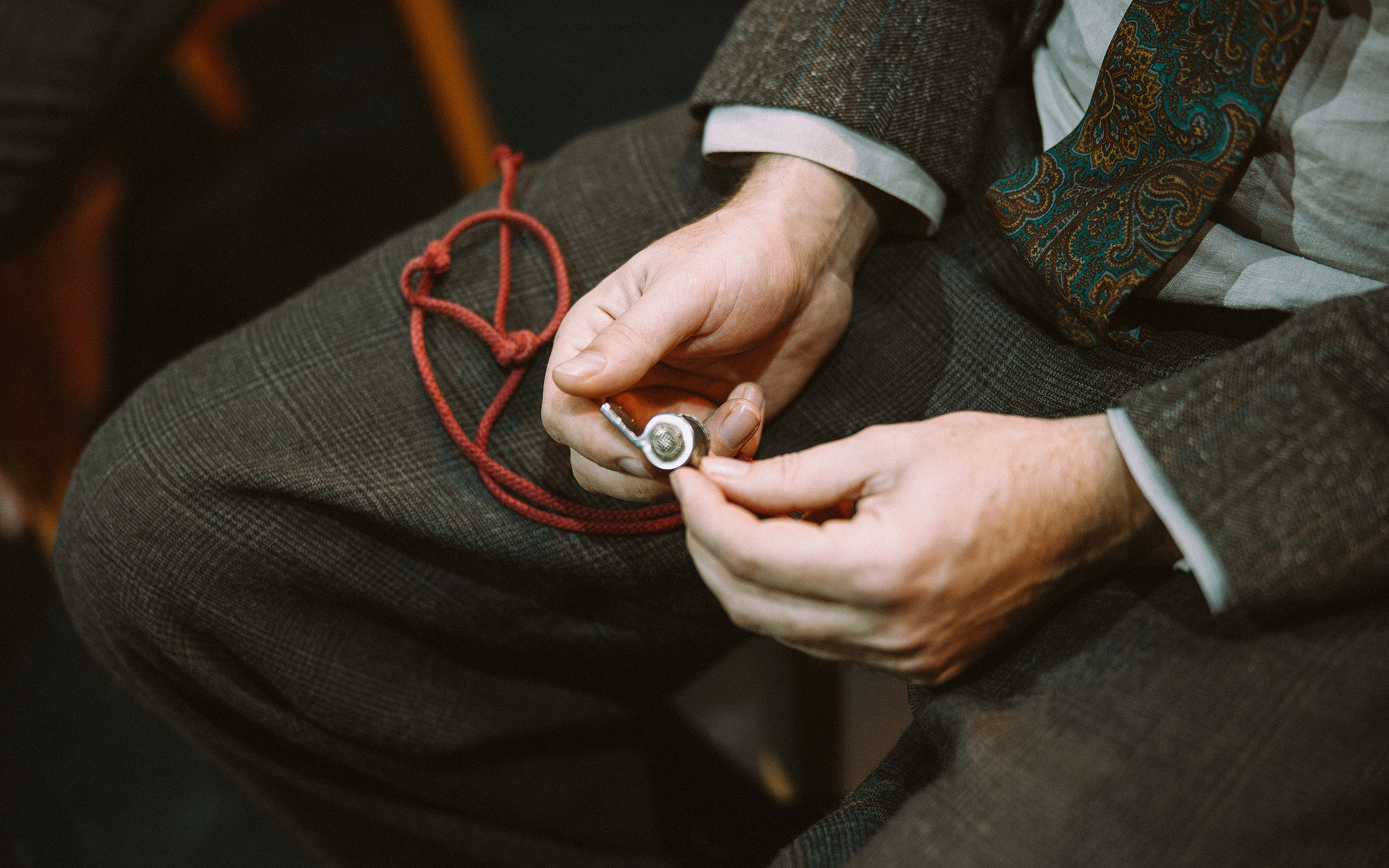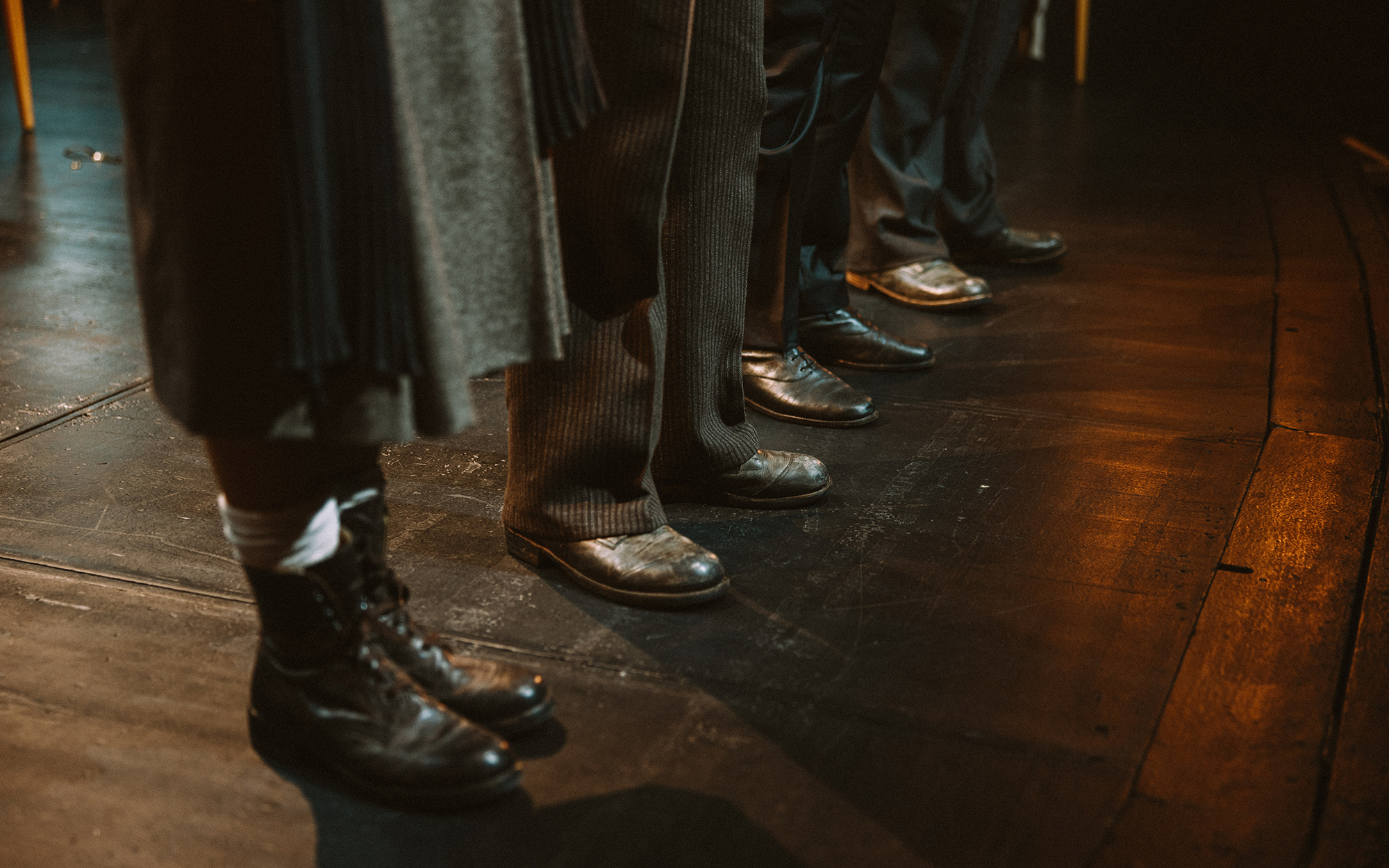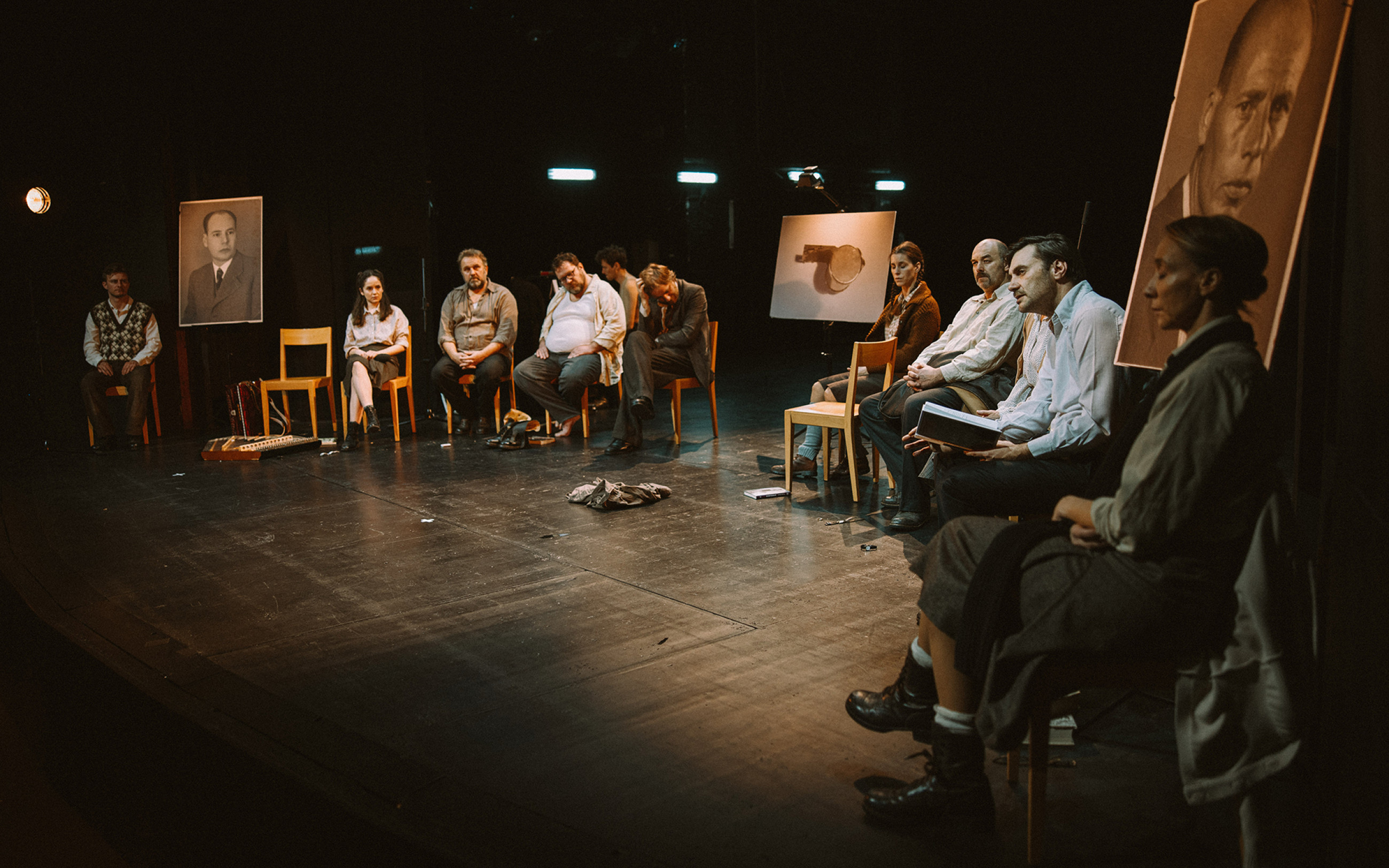Jernej Lorenci, Dino Pešut and team
The Pohorje Batallion
In recent decades, the war has once again become a regular companion in our lives, for the time being mainly in the form of live television broadcasts. Somehow we have become accustomed to explicit scenes of horror and destruction.
But what is the real experience of war? How does it feel to be without shelter, food, basic human dignity, on the run, most often with children? How does it feel to be caught in the massacre machinery, knowing that death is imminent?
S tem projektom se Lorenci vrača k motivu demoničnega zla vojne in človekovega trpljenja v vojni. Uprizoritev je v izhodišču oslonil na zgodbo poslednjih dni Pohorskega bataljona (tudi) z ambicijo gledališkega preizpraševanja mehanizmov in posledic strašne uničevalne vojne, ki ta hip divja v Evropi, v naši neposredni bližini.
The Pohorje Batallion
An attempt at reconstruction
World premiere
Premiere: 8. January 2024
Performance length is 3 hours and 0 minutes and has 1 pause.
Creators
Authors
Dino Pešut, Jernej Lorenci and team
Director
Jernej Lorenci
Dramaturg
Dino Pešut
Set designer
Branko Hojnik
Costume designer
Belinda Radulović
Composer
Branko Rožman
Choreographer
Gregor Luštek
Assistant to director and dramaturg
Žiga Hren
Language consultant
Maja Cerar
Translator
Sašo Puljarević
Counselor
Mateja Ratej
Lighting designer
Radomir Stamenković
Sound designer
Matija Zajc/Danijel Vogrinec
Actors
Mojca Funkl
Mirjam Korbar
Nina Rakovec
Lara Wolf k. g.
Branko Jordan
Primož Pirnat
Matej Puc
Lotos Vincenc Šparovec
Gaber K. Trseglav
Gašper Lovrec k. g.
Jure Rajšp k. g.
Jernej Lorenci is one of the most renowned Slovenian theatre directors. He has received many national and international awards. So far, he has directed seven productions at the Ljubljana City Theatre: the first one was Murder in the Cathedral in 1997, while the last one was an original project based on the motifs by A. P. Chekhov’s play The Man Who Lived in a Shell in 2020.
His most successful production at the Ljubljana City Theatre is The Storm that won nine awards at the Maribor Theatre Festival in 2012, along with Best Director’s Award and the festival’s Grand Prize, and a year later, Best Director’s Award at Bitef, the
Belgrade International Theatre Festival. In 2014, Jernej Lorenci received the Prešeren Fund Award, also for directing The Storm. His award-winning co-production of The Illiad (Ljubljana City Theatre, SNT Drama Ljubljana and Cankarjev dom, Ljubljana), which he directed in 2015, impressed the reviewers and audiences across Europe.

On the 8th of January 1943, around 2000 members of the occupying army surrounded the battalion camp at Osankarica. The combat started shortly before noon. In a fierce final battle that lasted two and a half hours, 69 fighters were killed, while the last fighter that was wounded was taken hostage and executed. Lorenci says: “In fact, it’s not really about the Pohorje Battalion at all. It’s about an extreme experience in extreme circumstances: fear, hunger, cold, stench, severed limbs, rotting bodies, thirst; there’s no kitchen, no toilet, no bed, no television, no internet, phone, yoghurt or gluten-free burgers. There is nothing that I (we) take for granted. Nothing that would be common or unquestionable. And yet I (we) make judgements. All the time. Although we don’t have extreme experiences in extreme circumstances. So, where do I (we) get the right to make judgements? Is it perhaps necessary to at least try to imagine such experiences in such circumstances? Or rather stop making judgements altogether? Is it perhaps time for me (us) to shut up?”

The literary and historic sources that were used in the production: Polde Bibič: Spominjarije, Ljubljana: Mladinska knjiga, 2011; France Filipič: Pohorski bataljon, Ljubljana: Državna založba Slovenije, 1979; Curzio Malaparte: Kaputt, Ljubljana: Cankarjeva založba, 2012; Pisma na smrt obsojenih, Franček Saje (ur.), Ljubljana: Državna založba Slovenije, 1959; Jelka Šporin Šarh: Kronika družine Šarh, Maribor, Ruše: Sophiacall, 2017; Stanislav Terčak: Ukradeni otroci, Ljubljana: Borec, 1973; Jožica Veble-Hodnik: Preživela sem taborišče smrti, Ljubljana: Borec, 1975; Tone Vrabl: Boleče zgodbe ljudi, med 2. svetovno vojno izgnanih iz Savinjske doline, Žalec: DIS, Območna organizacija, 2010; Franc Zalaznik-Leon: Dolga in težka pot: 1941-1945, Maribor: Obzorja, 1963 in Marjan Žnidarič: Do pekla in nazaj: nacistična okupacija in narodnoosvobodilno boj v Mariboru 1941-1945, Maribor: Muzej narodne osvoboditve, 1997
Coproducers City Theatre Ljubljana and City Theatre Ptuj

